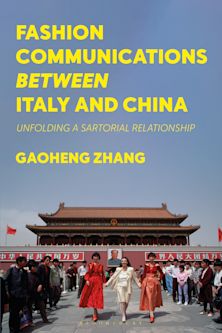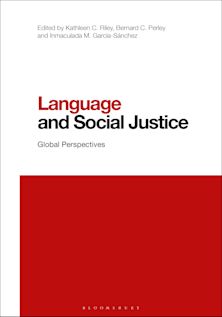- Home
- ACADEMIC
- Anthropology
- Cultural Anthropology
- The Task of Having to Be
The Task of Having to Be
Tradition, Place and Human Finitude in Dialogue with Japan
The Task of Having to Be
Tradition, Place and Human Finitude in Dialogue with Japan
Payment for this pre-order will be taken when the item becomes available
This product is usually dispatched within 10-14 days following the publication date
- Delivery and returns info
-
Free UK delivery on orders £30 or over
You must sign in to add this item to your wishlist. Please sign in or create an account
Description
At the heart of the anthropological project lies a need to tackle the conundrum of the human condition. And yet, the conundrum persists. Actually, the reflection over the conditions and possibilities of their own existence constitutes the greatest of human abilities, as well as the most ineffable of their limits. Anthropology seldom addresses this. When it does, it does not allow it to have a significant import in its reflections. The Task of Having to Be: Tradition, Place and Human Finitude in Dialogue with Japan does not try to solve the conundrum. Rather, it sheds some light over the reasons why it belongs to its nature to remain unsolved. Taking as a starting point a Japanese rural community and some elements of Japanese culture, the author reflects dialogically on several issues: the nature of tradition, the essence of places, the limitations of anthropological discourse on subjectivity and the self, and the connection between religion and human finitude. Cross-cutting these reflections is a concern with what precedes individual subjectivity; i.e, what grounds ontologically what we are and can be. To glimpse the conundrum that the human is entails, first and foremost, the realisation that there is always something in what we are that precedes the individuals and subjects we yearn to be.
Table of Contents
Prologue
Chapter 1: The Simultaneousness of All Historical Times: Ethnographic Context and Introductory Notes
Chapter 2: Beyond the Particular: Anthropology and Dialogue
Chapter 3: Tradition as a Historical Subject Matter
Chapter 4: Being, Place, and Language
Chapter 5: Experience Turned onto Itself
Chapter 6: Human Finitude and the Forms of the Ineffable
Chapter 7: On What Befalls Upon Us
Closing Remarks: Accepting Finitude
Bibliography
About the Author
Product details

| Published | 13 Nov 2025 |
|---|---|
| Format | Hardback |
| Edition | 1st |
| Extent | 184 |
| ISBN | 9781666980363 |
| Imprint | Bloomsbury Academic |
| Dimensions | 229 x 152 mm |
| Publisher | Bloomsbury Publishing |
About the contributors
Reviews
-
"A journey toward what we know we can never reach, yet never relinquish-the meaning folded within our finitude, and the ever-unfolding reflection on what it means to be human."
Filipe Verde, University Institute of Lisbon
-
"This is a unique and ground-breaking volume. One of the few examples of a work that is both genuinely anthropological and philosophical in its reflections, it ought to provoke a rethinking of much that is fundamental to both disciplines in their approach to the human. And although it has its genesis in the author's close engagement with rural Japanese life and culture, the volume has a global relevance and significance. This is, quite simply, one of the best and most thoughtful works to appear in recent years in any field and deserves a wide readership in anthropology, philosophy, and beyond."
Jeff Malpas, University of Tasmania



































